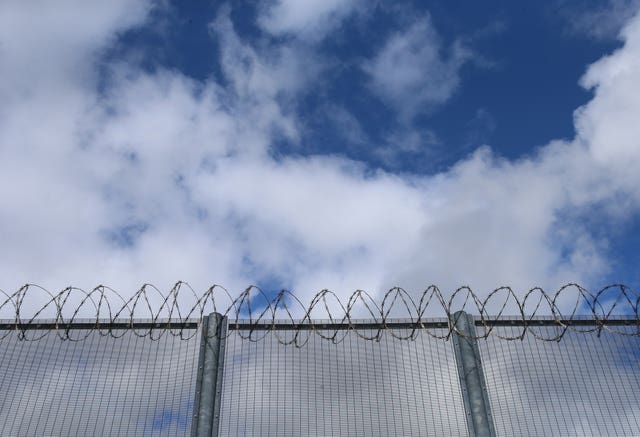
Prison staff who smuggle drugs into jails or have affairs with inmates will be targeted in a new anti-corruption drive.
Ministers have established a specialist unit to root out activity that causes “chaos” and violence behind bars.
The taskforce, which began work earlier this month, aims to “proactively pursue” those suspected of corruption in prison and probation services in England and Wales.
Justice Secretary David Gauke said: “Our prison staff are overwhelmingly dedicated and honest and do their best to instil safety and order in our jails.
“We have seen from recent criminal prosecutions, however, that a small minority continue to engage in corrupt behaviour in our prisons – damaging both the integrity of the system and their profession.
“This unit underlines our determination to stamp out criminality in prison in all its forms and will make sure we are closing the net on the individuals driving this, allowing the focus to be on safety and rehabilitation and ultimately keeping the public safer.”
The Counter Corruption Unit is comprised of 29 personnel, including expert intelligence analysts, split into a national team and five regional teams.
Officials emphasised that the taskforce will serve to protect the vast majority of prison and probation staff who are honest and hard-working.

It will take action to “counter the chaos and violence caused by the few who smuggle illicit items into our jails or impede our ability to supervise offenders in the community effectively”, the Ministry of Justice said.
Potential examples of corruption the teams could investigate include cases where staff have inappropriate relationships with prisoners or bring in drugs and other banned items for individual inmates or crime gangs.
The taskforce will work with law enforcement agencies to investigate and disrupt criminality and bring more prosecutions against those “causing harm” behind bars, the MoJ said.
The unit has been set four main aims – to protect against corruption by building an “open and resilient organisation”; prevent people from engaging in corrupt activity, strengthening professional integrity; to pursue and punish those involved in corruption; and to prepare prisons to minimise the impact of corruption when it occurs.
Police will also join the effort as authorities attempt to stop “criminal kingpins” using corruption to continue their illegal activity from their jail cells.
It is the latest in a series of moves designed to help stabilise the prison system after much of the estate was hit by surging levels of violence, drug use and self-harm.
Stopping the flow of contraband into jails is seen as a key plank of efforts to tackle the safety crisis.
In 2017/18, there were 13,119 incidents where drugs were found in prisons in England and Wales – an increase of 23% compared with the previous 12 months.
Mobile phone finds also went up, by 15%, to 10,643.
In January, a senior police officer told the BBC he “strongly suspects” gangs are getting their associates or family members jobs in the prison service with the intention of smuggling contraband in, although it was difficult to prove.
Appearing at the House of Lords Constitution Committee earlier this week, Mr Gauke emphasised the need to stop inexperienced officers being manipulated and entrapped by “sophisticated” criminal gangs.
Peter Dawson, director of the Prison Reform Trust, welcomed the announcement.
He said: “Anyone who lives or works in prison knows that corrupting a member of staff is one of the most effective ways to get drugs in.
“But turning suspicion into proof and prosecution takes time and specialist input, so it is good to see this unit set up.”


Comments: Our rules
We want our comments to be a lively and valuable part of our community - a place where readers can debate and engage with the most important local issues. The ability to comment on our stories is a privilege, not a right, however, and that privilege may be withdrawn if it is abused or misused.
Please report any comments that break our rules.
Read the rules here